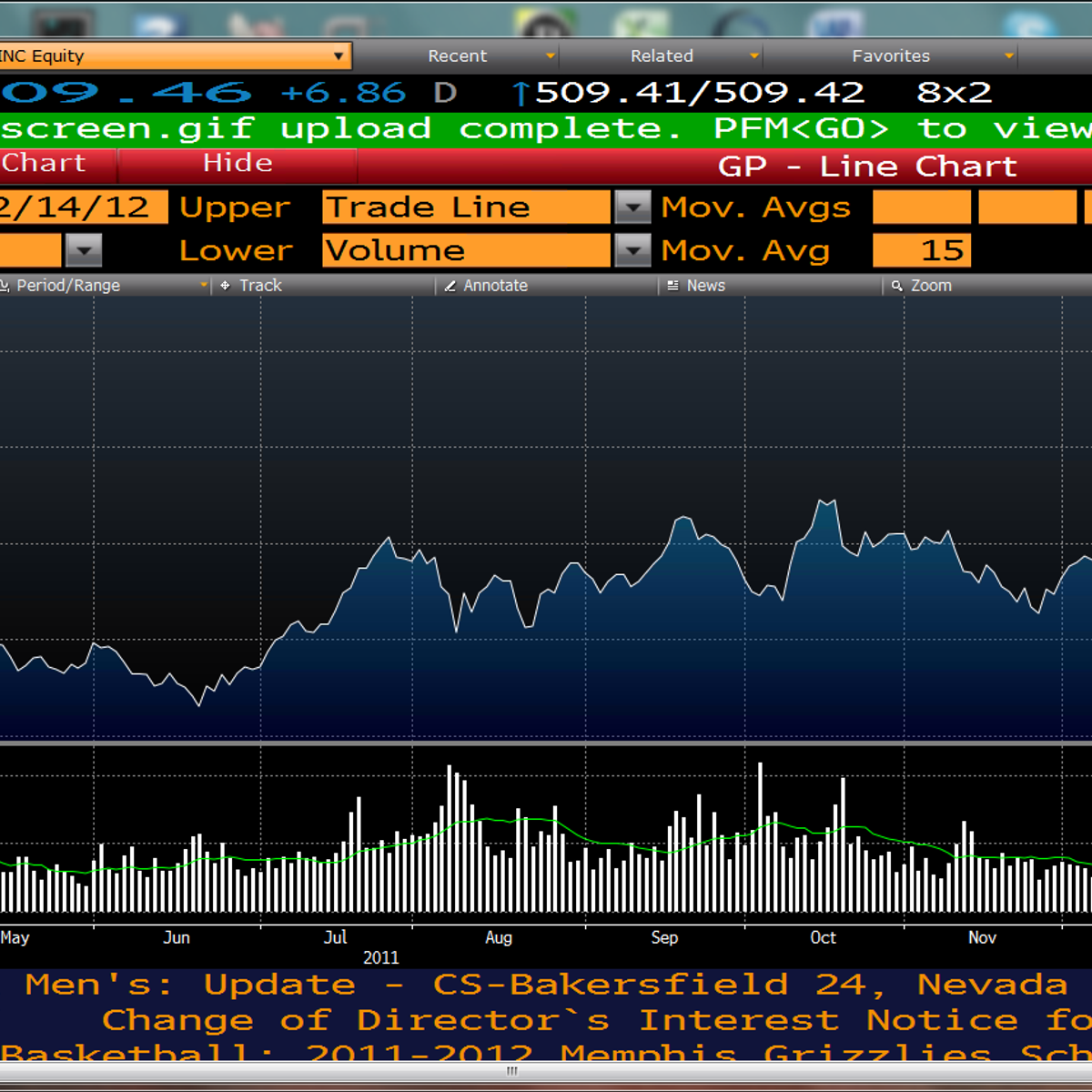Investment Manager
Investment Manager: Charting Your Course in the World of Finance
An investment manager is a professional who guides the investment strategy for clients, ranging from individuals to large institutions like pension funds or endowments. Their primary role involves using their knowledge, skills, and experience to invest money according to client objectives and risk tolerance. This involves constructing and managing investment portfolios designed to meet specific financial goals, such as growing wealth, preserving capital, or generating income.
Working as an investment manager can be intellectually stimulating and financially rewarding. You'll constantly engage with dynamic global markets, analyze complex financial data, and make critical decisions that directly impact clients' financial futures. The role often involves building strong client relationships and communicating sophisticated strategies clearly, offering a blend of analytical rigor and interpersonal skill.
Core Responsibilities of an Investment Manager
The daily life of an investment manager is multifaceted, involving a mix of analysis, strategy, client interaction, and administrative tasks. Responsibilities can vary significantly based on the type of firm (e.g., mutual fund, hedge fund, private wealth management) and the nature of the clientele (institutional vs. retail).
Portfolio Construction and Asset Allocation
A central task is designing investment portfolios. This involves selecting an appropriate mix of assets—like stocks, bonds, real estate, and alternative investments—based on the client's goals, time horizon, and risk appetite. Investment managers use complex financial models and research to determine which assets to buy, hold, or sell.
They constantly monitor market conditions and economic trends to adjust allocations as needed. This requires not just understanding individual securities but also grasping macroeconomic factors and geopolitical events that can influence market movements. Active listening and understanding client needs are crucial for aligning the portfolio strategy effectively.
This involves identifying appropriate asset classes, selecting specific investment vehicles (like mutual funds, ETFs, or individual securities), and ensuring the portfolio is well-diversified to manage risk. The goal is to optimize the balance between potential return and acceptable risk exposure.
To gain a deeper understanding of how portfolios are built and managed, consider exploring foundational concepts through dedicated learning resources. These courses provide insights into the theories and practical applications used by professionals.
Foundational knowledge in portfolio theory is essential for aspiring investment managers. These books offer comprehensive insights into investment principles and strategies.
Client Relationship Management
Investment managers often work closely with clients. This involves understanding their financial situations, explaining complex investment strategies in simple terms, and providing regular updates on portfolio performance. Building trust and maintaining strong relationships are essential for client retention and satisfaction.
Communication skills are paramount. Managers must be adept at presenting investment advice, justifying decisions, and managing client expectations, especially during periods of market volatility. This requires not only technical expertise but also empathy and emotional intelligence.
For institutional clients, relationship management might involve formal presentations to investment committees or boards. For individual clients, it often involves more personalized conversations about life goals and financial security. Regardless of the client type, clear, transparent communication is key.
Performance Monitoring and Reporting
A significant part of the job involves tracking the performance of investment portfolios against benchmarks and client goals. Investment managers analyze returns, assess risk levels, and identify reasons for underperformance or outperformance.
They prepare detailed reports for clients, explaining how the portfolio has performed and outlining any changes to the strategy. This requires proficiency with financial software and analytical tools to process data and generate meaningful insights.
Regular reviews ensure that the investment strategy remains aligned with the client's objectives and market conditions. This ongoing monitoring allows managers to make timely adjustments and demonstrate accountability for the investment outcomes.
Regulatory Compliance and Ethical Decision-Making
The investment industry is heavily regulated. Managers must stay abreast of relevant laws and regulations, ensuring their practices comply with legal standards and industry best practices. This includes adhering to rules related to disclosures, trading practices, and client suitability.
Ethical conduct is fundamental. Investment managers have a fiduciary duty to act in the best interests of their clients. This means prioritizing client goals over personal gain and avoiding conflicts of interest. Maintaining high ethical standards builds trust and protects the reputation of both the manager and the firm.
Navigating ethical dilemmas, such as balancing performance pressures with responsible investing or managing potential conflicts between different clients, is a critical aspect of the role. Organizations like the CFA Institute provide ethical guidelines and frameworks that are widely recognized in the industry.
Required Skills and Qualifications
Success as an investment manager demands a unique blend of quantitative prowess, strategic thinking, and interpersonal abilities. The field is competitive, and employers seek candidates with a strong foundation in finance coupled with demonstrable skills and relevant credentials.
Analytical and Quantitative Skills
A strong aptitude for numbers is essential. Investment managers must be proficient in financial analysis, including interpreting financial statements, understanding valuation metrics, and building sophisticated financial models. They need to analyze vast amounts of data to identify trends, assess risks, and spot investment opportunities.
Quantitative skills extend to understanding statistical concepts and risk management techniques. Familiarity with portfolio theory, asset pricing models like the Capital Asset Pricing Model (CAPM), and performance attribution methods is often required.
As the industry evolves, proficiency in data analysis tools and even programming languages like Python or R is becoming increasingly valuable, particularly in quantitative or systematic investment roles. These skills enable managers to handle large datasets and implement more complex strategies.
Developing strong mathematical and analytical foundations is key. These courses cover quantitative methods frequently used in finance.
Communication and Soft Skills
Technical skills alone are not enough. Investment managers need excellent communication skills to explain complex financial concepts clearly to clients, colleagues, and stakeholders. They must be able to articulate investment strategies, justify decisions, and build trusting relationships.
Emotional resilience and sound judgment are crucial, especially during market downturns. Managers need to remain calm under pressure, make rational decisions amidst uncertainty, and manage client anxieties effectively. Confidence in one's analysis and decisions is also important.
Other vital soft skills include intellectual curiosity, a passion for markets, tenacity, and strong problem-solving abilities. The ability to work collaboratively within a team and manage relationships effectively contributes significantly to success in this client-facing role.
Professional Certifications
While not always mandatory, professional certifications significantly enhance credibility and career prospects. The Chartered Financial Analyst (CFA) designation is widely considered the gold standard in investment management globally. Earning the CFA charter requires passing three rigorous exams covering topics like ethics, economics, financial reporting, portfolio management, and wealth planning, along with meeting professional experience requirements.
Other relevant certifications include the Certified Investment Management Analyst (CIMA) and the Financial Risk Manager (FRM). These designations demonstrate specialized knowledge and commitment to the profession. Requirements often include passing exams and having relevant work experience.
Pursuing these certifications demands significant time and dedication but signals a high level of expertise and adherence to ethical standards, making candidates more attractive to employers and clients. The CFA Institute website provides detailed information on eligibility and exam structure.
Technical Proficiency
Familiarity with industry-standard tools is often expected. Proficiency in using platforms like the Bloomberg Terminal for real-time data, news, and analytics is common, especially in roles involving trading or market analysis.
Advanced skills in spreadsheet software like Microsoft Excel for financial modeling and data analysis are fundamental. Investment managers use Excel extensively for tasks ranging from portfolio tracking to valuation analysis.
In quantitative roles, knowledge of statistical software or programming languages like Python or R is increasingly important for data analysis, backtesting strategies, and algorithmic trading. While not required for all roles, technical skills provide a competitive edge.
Formal Education Pathways
Embarking on a career as an investment manager typically begins with a strong educational foundation. While specific requirements vary, certain academic paths are more common and provide the necessary knowledge base for this demanding field.
Relevant Undergraduate Majors
A bachelor's degree is generally the minimum educational requirement. Degrees in Finance, Economics, or Mathematics provide a solid grounding in the quantitative and analytical skills needed. Business administration, accounting, or statistics are also relevant fields.
Coursework typically includes topics like corporate finance, investments, financial markets, microeconomics, macroeconomics, calculus, and statistics. A strong academic record from a reputable university is often favored by employers.
Regardless of the specific major, demonstrating a keen interest in financial markets and strong analytical abilities through coursework and extracurricular activities is crucial. Internships in finance-related roles are highly beneficial for gaining practical experience and making industry connections.
Graduate Studies: MBA and Specialized Master's Programs
While not always required, a Master of Business Administration (MBA) with a finance concentration or a specialized master's degree can significantly enhance career prospects, particularly for advancement into senior roles. An MBA provides broader business knowledge alongside finance expertise.
Specialized master's programs, such as a Master's in Finance (MFin), Financial Engineering, Quantitative Finance, or Investment Management, offer deeper technical knowledge. These programs are often preferred for roles requiring advanced quantitative skills, like quantitative analysis or risk management.
Choosing between an MBA and a specialized master's depends on career goals. An MBA is often pursued after gaining some work experience and is valuable for leadership roles, while specialized master's degrees are suitable for those seeking deep technical expertise early in their careers.
Doctoral Routes for Specialized Roles
A Ph.D. in Finance, Economics, or a related quantitative field is typically pursued by those interested in academic research or highly specialized quantitative roles within the investment industry, such as developing complex trading algorithms or leading quantitative research teams.
Ph.D. programs involve rigorous research and the development of original contributions to the field. While demanding, a doctorate provides unparalleled depth of knowledge and analytical capability, opening doors to specialized research positions at investment firms, hedge funds, or research institutions.
This path is less common for typical investment management roles focused on client portfolio management but is essential for certain niche areas within the industry, particularly those heavily reliant on mathematical modeling and cutting-edge research.
Importance of Internships and Extracurriculars
Academic qualifications alone are often insufficient. Practical experience gained through internships is highly valued by employers. Internships provide exposure to the real-world workings of financial markets and investment management firms.
Participation in finance-related extracurricular activities, such as student investment clubs, trading competitions, or finance societies, demonstrates passion and initiative. These activities provide opportunities to apply theoretical knowledge, develop practical skills, and network with industry professionals.
Building a strong resume with relevant experiences and demonstrated interest is key to standing out in the competitive job market. Early engagement with the industry through internships and activities significantly improves the chances of securing an entry-level position after graduation.
Online and Self-Directed Learning in Investment Management
Beyond formal degrees, the landscape of learning has expanded significantly, offering flexible and accessible ways to build knowledge and skills in investment management. Online courses and self-directed study can be powerful tools for aspiring professionals, career changers, and those looking to upskill.
Platforms like OpenCourser aggregate thousands of courses from various providers, making it easier to find relevant learning opportunities. Whether you're supplementing a formal education or building foundational knowledge from scratch, online resources offer valuable pathways.
Exploring Key Investment Topics Online
Online courses cover a vast range of investment topics, from foundational principles to specialized niches. You can find courses on portfolio theory, asset valuation, risk management, financial modeling, and behavioral finance. Specialized areas like ESG (Environmental, Social, and Governance) investing, algorithmic trading, or real estate investment are also well-represented.
These courses, often taught by university professors or industry experts, provide structured learning paths. Many offer practical exercises, case studies, and assessments to reinforce learning. This flexibility allows learners to study at their own pace and focus on areas most relevant to their career goals.
For those new to the field, introductory courses can demystify complex concepts. For experienced professionals, advanced courses offer opportunities to deepen expertise or stay current with industry trends and new analytical techniques.
Online courses offer a flexible way to learn specific skills or explore niche areas like real estate or alternative investments. Consider these options to broaden your investment knowledge.
Gaining Practical Experience Virtually
While hands-on experience is invaluable, online platforms increasingly offer ways to bridge the gap between theory and practice. Virtual trading simulations allow learners to manage mock portfolios using real market data without financial risk. This helps develop practical decision-making skills.
Some courses incorporate projects that require learners to build financial models, perform security analysis, or develop investment proposals. These project-based learning experiences provide tangible outputs that can be showcased to potential employers.
Participating in online investment communities or forums can also provide insights and allow for discussion with peers and experienced professionals. Engaging with case studies and real-world examples presented in courses further enhances practical understanding.
Credential Stacking for Career Advancement
Online learning allows for "credential stacking"—accumulating certificates or specializations from various courses to build a targeted skill set. This approach can be particularly effective for career changers who need to demonstrate relevant knowledge quickly.
Completing a series of courses in areas like financial analysis, portfolio management, and data science can create a compelling narrative for employers. Platforms often offer professional certificates or MicroMasters programs designed to provide comprehensive knowledge in a specific domain.
While individual course certificates may not carry the same weight as a full degree or a major certification like the CFA, a portfolio of relevant online credentials can demonstrate initiative, commitment, and foundational knowledge, especially when combined with other experiences or skills.
Setting Realistic Expectations
While online learning offers tremendous value, it's important to have realistic expectations. Completing online courses alone is unlikely to secure a high-level investment management role without complementary formal education, practical experience (like internships), or professional certifications.
Online courses are best viewed as a supplement or a starting point. They are excellent for building foundational knowledge, exploring interests, developing specific technical skills, and demonstrating commitment to continuous learning. However, the networking opportunities and deep mentorship often found in traditional academic programs or early career roles are harder to replicate online.
For career changers, breaking into investment management is challenging. It often requires significant effort in networking, gaining relevant experience (even if starting in a more junior role), and potentially pursuing formal qualifications alongside online learning. Be persistent, leverage transferable skills, and understand that it's a marathon, not a sprint.
Understanding the broader financial landscape is crucial for investment managers. These books offer valuable perspectives on markets and investment philosophies.
Career Progression for Investment Managers
The path within investment management offers various opportunities for growth and specialization. Progression typically involves moving from analytical roles to positions with greater responsibility for portfolio decisions and client relationships. The trajectory can vary based on the firm's structure, individual performance, and market conditions.
Entry-Level Roles
Many professionals start their careers in roles like Research Analyst or Associate Portfolio Manager. Research Analysts focus on analyzing specific companies, industries, or asset classes, providing investment recommendations to portfolio managers. They develop deep analytical skills and industry knowledge.
Associate Portfolio Managers often support senior managers in portfolio construction, monitoring, and client reporting. This role provides exposure to the broader aspects of portfolio management and client interaction, serving as a stepping stone to managing portfolios independently.
These entry-level positions typically require a strong academic background in finance or a related field, excellent analytical skills, and often involve long hours and intense pressure. Success in these roles hinges on diligence, accuracy, and the ability to generate insightful analysis.
Mid-Career Transitions and Specialization
After gaining several years of experience, investment professionals may progress to roles like Portfolio Manager, managing specific funds or client accounts directly. At this stage, individuals often specialize in particular asset classes (e.g., equities, fixed income, alternatives) or investment styles (e.g., growth, value, quantitative).
Mid-career professionals might also transition to different segments of the investment industry. Opportunities exist in hedge funds, private equity firms, venture capital, or wealth management, each offering unique challenges and rewards. These transitions often require specialized skills or networks.
Building a strong track record of performance is critical for advancement. Networking, continuous learning, and potentially obtaining certifications like the CFA charter can further enhance career mobility and open doors to more senior or specialized roles.
Senior Leadership Roles
With significant experience and a proven track record, investment managers can advance to senior leadership positions. Roles like Chief Investment Officer (CIO) involve overseeing the entire investment strategy and team for an organization, such as an asset management firm, pension fund, or endowment.
Some successful investment managers may eventually start their own investment firms or hedge funds. This entrepreneurial path requires not only strong investment acumen but also business management skills, capital raising abilities, and regulatory compliance expertise.
Reaching these top-tier positions requires exceptional investment skill, leadership ability, strategic vision, and often, a strong professional network built over many years in the industry. Compensation at this level can be substantial but comes with immense responsibility.
Alternative Career Paths
The skills developed as an investment manager are transferable to other areas within finance and beyond. Experienced professionals might pivot into roles in financial technology (fintech) or wealth technology (wealthtech) startups, leveraging their industry knowledge to develop innovative solutions.
Other potential paths include consulting roles advising financial institutions, corporate finance positions within non-financial companies, or roles in financial regulation or policy. Some may also transition into academia, teaching and conducting research in finance.
The analytical rigor, strategic thinking, and market knowledge gained in investment management provide a strong foundation for various alternative careers, offering flexibility for those seeking different challenges or work environments later in their careers.
Industry Trends Impacting Investment Managers
The investment management landscape is constantly evolving, shaped by technological advancements, changing investor preferences, and global economic shifts. Staying informed about these trends is crucial for professionals seeking to remain competitive and effective in their roles.
Rise of Passive Investing and Robo-Advisors
One of the most significant trends is the growth of passive investing through index funds and Exchange-Traded Funds (ETFs). These vehicles offer broad market exposure at low costs, challenging traditional active management strategies. Data shows a continued shift of assets from active to passive funds, particularly in equities.
This trend puts pressure on active managers to demonstrate value and justify higher fees. It also drives innovation in active strategies, pushing managers to find unique sources of alpha or focus on less efficient market segments. The rise of robo-advisors, automated platforms providing low-cost investment advice, further competes with traditional advisory models, especially for smaller retail clients.
Investment managers need to adapt by clearly articulating their value proposition, potentially incorporating passive elements into portfolios, or focusing on areas where active management can still provide distinct advantages, such as alternative investments or complex financial planning.
These books delve into the concepts behind passive and index investing, crucial knowledge in today's market.
ESG Integration and Impact Investing
Environmental, Social, and Governance (ESG) factors are increasingly integrated into investment processes. Investors, particularly younger generations and large institutions, are demanding that their portfolios align with sustainability goals and ethical values. ESG investing is moving from a niche practice to a mainstream consideration.
Investment managers must now develop expertise in evaluating companies based on ESG criteria alongside traditional financial metrics. This involves understanding complex issues like climate risk, supply chain labor practices, and corporate governance structures. Firms are developing proprietary ESG scoring systems or relying on third-party data providers.
Impact investing, which seeks measurable positive social or environmental impact alongside financial returns, is also growing. Managers need to navigate the complexities of measuring impact and avoid "greenwashing"—making unsubstantiated claims about sustainability. According to research by McKinsey, strong ESG performance can correlate with positive financial outcomes, making it a key strategic consideration.
Geopolitical Risk Analysis
In an increasingly interconnected world, geopolitical events—such as trade disputes, political instability, and international conflicts—can significantly impact global financial markets. Investment managers must incorporate sophisticated geopolitical risk analysis into their investment decision-making.
This requires understanding international relations, political economy, and the potential market consequences of global events. Managers need to assess how these risks might affect specific countries, sectors, or companies within their portfolios.
Developing strategies to mitigate geopolitical risks, such as diversifying portfolios across regions or using hedging instruments, is becoming more important. Staying informed through diverse news sources and expert analysis is essential for navigating this complex landscape.
AI and Machine Learning Applications
Artificial Intelligence (AI) and Machine Learning (ML) are transforming various aspects of investment management. These technologies are used to analyze vast datasets (including alternative data like satellite imagery or social media sentiment) to identify patterns and generate trading signals.
AI can enhance efficiency by automating routine tasks like data collection and analysis, freeing up managers to focus on higher-level strategy and client interaction. AI-powered tools can also assist in risk management, portfolio optimization, and even refining the analysis of buy/sell signals.
While AI offers significant potential, its adoption also presents challenges, including model complexity, data quality issues, and the need for human oversight. Investment managers need to understand both the capabilities and limitations of these technologies to leverage them effectively and responsibly, as highlighted in research from firms like Russell Investments and reports from the CFA Institute.
Ethical Challenges in Investment Management
The investment management profession operates on a foundation of trust. Clients entrust managers with significant financial assets, expecting them to act with integrity and prioritize client interests. However, the nature of the industry presents unique ethical challenges that professionals must navigate carefully.
Managing Conflicts of Interest
Conflicts of interest can arise in various situations. For example, a manager might be incentivized to recommend investment products that generate higher commissions for the firm, even if they aren't the absolute best option for the client. Firms that manage multiple funds or client accounts might face conflicts when allocating limited investment opportunities.
Transparency and robust internal policies are crucial for managing these conflicts. Disclosing potential conflicts to clients and having clear procedures for fair allocation and product selection help maintain ethical standards. Prioritizing the client's best interest, even when it conflicts with the firm's or manager's short-term gain, is paramount.
Regulatory bodies and professional organizations like the CFA Institute provide strict guidelines on identifying and managing conflicts of interest to uphold fiduciary duty.
Fiduciary Duty vs. Sales Incentives
Investment managers operate under a fiduciary duty, meaning they have a legal and ethical obligation to act solely in the best interest of their clients. However, compensation structures within some firms may create tension with this duty, particularly if managers are heavily incentivized based on sales volume or assets under management.
This can create pressure to gather assets or push certain products, potentially compromising objective advice. Ethical managers must resist these pressures and ensure their recommendations are always driven by client needs and suitability, not by personal or firm incentives.
Understanding the nuances of fiduciary responsibility and adhering to it rigorously is a cornerstone of ethical investment management. Clear communication with clients about how the manager is compensated can also help build trust.
Greenwashing and ESG Integrity
As ESG investing grows, so does the risk of "greenwashing"—exaggerating or misrepresenting the environmental or social credentials of an investment product. Managers face pressure to offer ESG-friendly options, but ensuring the authenticity and actual impact of these investments is an ethical challenge.
Ethical managers must conduct thorough due diligence on ESG claims, relying on credible data and transparent methodologies. They need to be honest with clients about the limitations and complexities of ESG integration and avoid promoting products based on misleading sustainability claims.
Maintaining integrity in ESG reporting and product labeling is crucial for the credibility of both the manager and the burgeoning field of sustainable finance. Regulatory scrutiny in this area is increasing, demanding greater accountability.
Cross-Cultural Ethical Considerations
In a globalized investment world, managers often deal with clients, companies, and markets across different cultures with varying ethical norms and business practices. What is considered acceptable business conduct in one region might be viewed differently elsewhere.
Investment managers must be sensitive to these cultural differences while upholding universal ethical principles, such as honesty, fairness, and respect. Navigating issues like bribery, corruption, or differing labor standards in international investments requires careful judgment.
Developing cross-cultural competence and adhering to internationally recognized ethical standards, such as those promoted by the CFA Institute, helps managers operate responsibly in a diverse global environment.
Frequently Asked Questions (FAQs)
Navigating the world of investment management can raise many questions, whether you're considering it as a career, seeking investment help, or simply curious. Here are answers to some common queries.
What's the difference between an investment manager and a financial advisor?
While there's overlap, the roles differ in focus. Investment managers typically concentrate on constructing and managing investment portfolios, often for institutions or high-net-worth individuals, with a deep dive into security selection and asset allocation.
Financial advisors often provide broader financial planning services, including retirement planning, insurance, budgeting, and estate planning, alongside investment advice. Their client base is frequently retail investors. Some professionals may perform both functions, but investment management usually implies a more specialized focus on portfolio strategy and execution.
Is an MBA necessary for career advancement?
An MBA is not strictly necessary but can be highly beneficial, especially for reaching senior management or leadership roles. It provides broader business acumen, leadership skills, and valuable networking opportunities. Many top executives in investment management hold MBAs.
However, a strong track record, relevant work experience, and certifications like the CFA charter can also lead to significant career advancement without an MBA. For roles requiring deep technical expertise, a specialized master's degree (e.g., MFin, Quantitative Finance) might be more valuable than a general MBA.
The decision often depends on individual career goals, the specific firm's culture, and the desired career trajectory. It's a significant investment of time and money, so carefully weigh the potential benefits against the costs.
How vulnerable is the investment manager role to AI disruption?
AI is undoubtedly impacting the industry, automating certain tasks like data analysis and potentially streamlining portfolio construction, as noted by firms like J.P. Morgan Asset Management. Basic robo-advisory services are replacing some traditional functions for simpler portfolios. However, AI is currently seen more as a tool to augment human capabilities rather than replace managers entirely.
Complex strategic thinking, nuanced client relationship management, ethical judgment, and adapting to unforeseen market events still require human expertise. AI struggles with the qualitative aspects of investment, understanding client emotions, and navigating unprecedented situations. The roles most vulnerable are likely those focused heavily on routine data processing or basic analysis.
Successful managers in the future will likely be those who can effectively leverage AI tools to enhance their decision-making and efficiency, while focusing on the higher-value tasks that require human insight and interpersonal skills. Continuous learning and adaptability will be key.
What are typical compensation ranges?
Compensation for investment managers varies widely based on experience, firm type (e.g., large asset manager vs. boutique hedge fund), location, assets under management (AUM), and performance. Entry-level analyst roles might start around $60,000-$90,000 base salary, plus bonus.
Experienced portfolio managers can earn significantly more, with base salaries often ranging from $100,000 to over $200,000. According to ZipRecruiter data as of April 2025, the average annual pay in the US is around $127,750, with top earners exceeding $200,500. Bonuses, often tied to fund performance and AUM, can constitute a substantial portion of total compensation, sometimes exceeding the base salary, especially in successful hedge funds or private equity.
Senior roles like CIO or fund founders can potentially earn millions, but these positions are highly competitive and carry immense responsibility. Geographic location also plays a role, with major financial centers like New York typically offering higher compensation ranges.
What are the work-life balance expectations?
Investment management is known for being demanding, often requiring long hours, especially during peak periods like earnings season or market volatility. Early mornings to catch market opens and late evenings for research or client meetings are common. A typical day involves constant market monitoring, analysis, meetings, and potentially travel.
The pressure to perform and manage client expectations can also contribute to stress. While some firms or roles might offer better balance than others, it's generally not considered a standard 9-to-5 job. Passion for the markets and high resilience are often necessary traits.
Work-life balance can improve somewhat with seniority, but the responsibility and pressure often remain high. Those considering this career should be prepared for a demanding environment that requires significant commitment.
What are critical first steps for career changers?
For those pivoting into investment management, start by building foundational knowledge through self-study, online courses (check Finance & Economics courses on OpenCourser), or potentially pursuing relevant certifications like the CFA.
Identify transferable skills from your previous career, such as analytical abilities, client management, or strategic thinking. Network extensively within the industry – attend events, connect with professionals online, and seek informational interviews.
Be realistic about potentially starting in a more junior or related role (like financial analysis or operations) to gain relevant experience. Tailor your resume and cover letter to highlight relevant skills and demonstrate your passion for investment management. Persistence and a clear strategy are key.
Exploring foundational investment concepts is a good starting point. These books provide accessible introductions to investing principles.
Helpful Resources
For further exploration into the world of investment management, consider these resources:
- CFA Institute: The global association for investment professionals, offering the CFA Program, ethical standards, research, and career resources.
- Bureau of Labor Statistics (BLS) - Financial Managers: Provides occupational outlook, salary data, and job descriptions for financial managers in the U.S.
- OpenCourser - Finance & Economics: Explore a wide range of online courses covering investment principles, portfolio management, financial analysis, and related topics.
- OpenCourser Learner's Guide: Find tips on how to effectively use online courses for career development, build a learning plan, and stay motivated.
- Financial News Outlets: Stay current with market trends and industry news through reputable sources like The Wall Street Journal, Bloomberg, Reuters, and the Financial Times.
Embarking on a career as an investment manager requires dedication, continuous learning, and a genuine passion for financial markets. It offers the potential for significant intellectual challenge and reward. By understanding the responsibilities, required skills, and industry dynamics, you can make an informed decision about whether this demanding yet potentially fulfilling path is right for you.





































